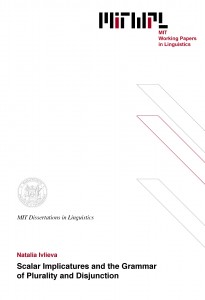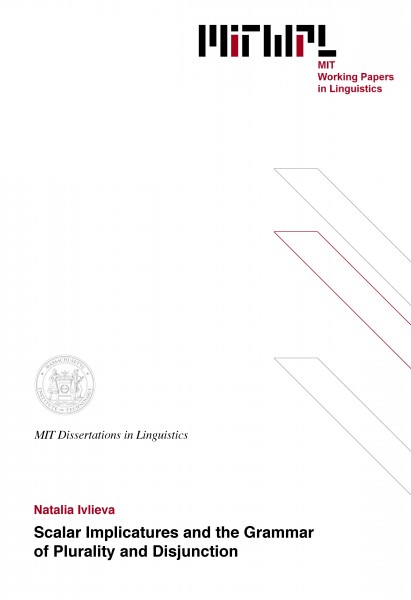Scalar Implicatures and the Grammar of Plurality and Disjunction
Natalia Ivlieva, 2013
This dissertation explores the role of scalar implicatures in the grammar of plurality and disjunction. I argue that scalar implicatures are relevant not only for the meaning of plurals and disjunctions, but also for their distribution in language. For example, the computation of scalar implicatures will be shown to be the decisive factor regulating the patterns of (un)grammaticality of plural agreement with disjunctive noun phrases (Chapter 3). But before getting to conclusions like that, I will spend some time on the semantics of bare plurals (Chapter 2), developing a version of the grammatical view of scalar implicatures along the way (some necessary background on scalar implicatures will be built in Chapter 1).
The claim that scalar implicatures are calculated in the grammar is very far from uncontroversial. But if they really are, then many of the facts that I discuss could be predicted, more or less straightforwardly. If one treats scalar implicature calculation as a purely pragmatic process, these facts are arguably harder to make sense of.

